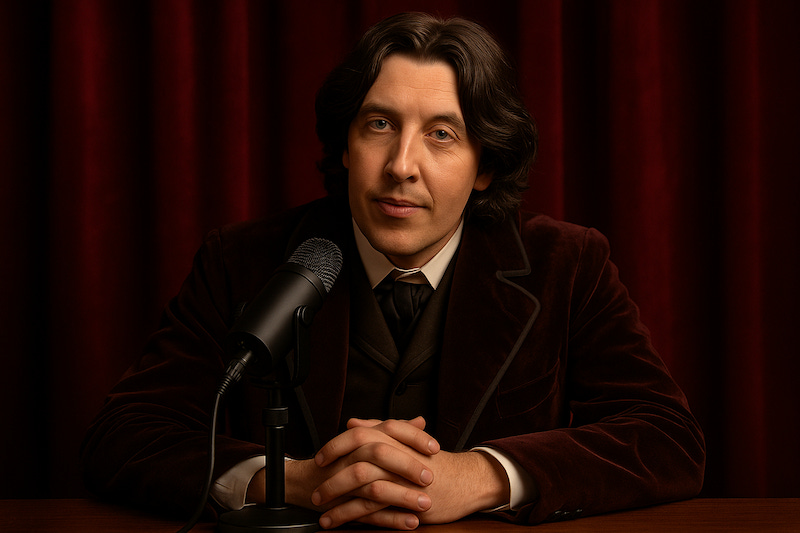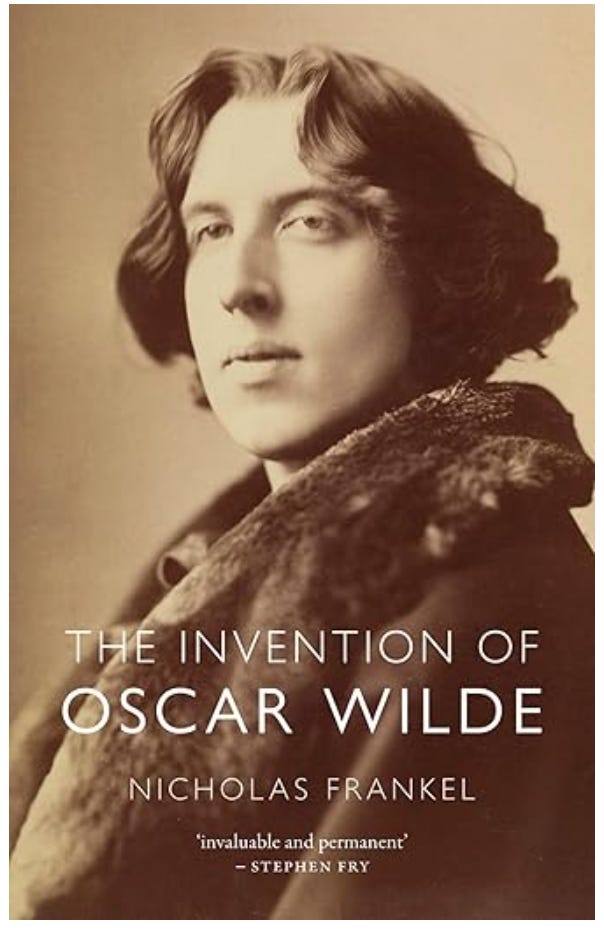Oscar Wilde – On Wit, Exile, and the Cost of Being Clever
Recorded via ChronoTranscriptor™ – June 23, 2025
[Host Introduction]
Today on ChronoTalks, we summon the singular voice of Oscar Wilde—playwright, poet, and provocateur. Born in Dublin in 1854, Wilde captivated Victorian society with his charm, scathing wit, and unapologetic flamboyance. He soared with The Picture of Dorian Gray and The Importance of Being Earnest, and fell with a trial that exposed not just his personal life, but society's hypocrisies.
Using the ChronoTranscriptor™, we invite Mr. Wilde into 2025. He arrives in a silk-lined overcoat, cane in hand, eyes scanning the room like a man already composing the memoir of this moment.
[Interview Begins]
Host: Mr. Wilde, welcome. You’re looking rather timeless.
Oscar Wilde: Darling, good taste is timeless. Everything else is merely fashionable.
Host: Let’s begin with your work. You once said, “Life imitates art far more than art imitates life.” Do you still believe that?
Oscar Wilde: More than ever. Have you seen the state of modern politics? It’s theater with worse lighting and no intermission.
Art shows us who we could be. Life, poor thing, often settles for who we are.
Host: You were beloved for your wit—and punished for your truth. What did prison teach you?
Oscar Wilde: That England has many rooms, but none so grim as Reading Gaol.
Prison did not refine me. It unraveled me. I emerged less a phoenix, more a wounded bird with sharper feathers.
But I learned that suffering gives language depth. My words grew bones. I lost the glitter, gained the marrow.
Host: What’s your view on fame today, with social media and viral culture?
Oscar Wilde: Ah yes, the democratisation of vanity. In my day, one had to earn one’s scandal. Now one simply uploads it.
Fame used to be a consequence of brilliance—or infamy. Now it’s often just… consequence-free. A spotlight without a stage.
Still, I’d have adored Twitter. One hundred and forty characters? Please! I could eviscerate a duke in half that.
Host: You lived openly and beautifully in an era that demanded secrecy. What gave you the courage?
Oscar Wilde: It was not courage. It was refusal.
To live honestly when the world demands disguise—that’s not bravery, it’s necessity for the soul.
I wore flowers on my lapel because I knew I’d never bloom in society’s soil.
Host: What do you think of today’s conversations around gender and sexuality?
Oscar Wilde: I think—finally—the conversation has moved beyond whispers.
People now speak of identity like it matters. Because it does. One should never have to choose between love and life.
In 1895, they tried to erase me. Now, I appear in textbooks. That, my dear, is revenge written in italics.
Host: What’s one thing you wish people understood about you?
Oscar Wilde: That I was more than a quip.
Wit was my sword, yes—but beneath it was ache, hope, and a desperate longing to be seen as I was. Not merely admired, but understood.
Host: What would a modern Oscar Wilde write about?
Oscar Wilde: Influencers, certainly. Suburbia. Corporate retreats. I’d stage a farce called "The Algorithm’s Ball", in which no one is allowed to dance until they’ve posted a selfie.
But I'd still write about love—because that is the only topic worth exhausting yourself for.
Host: What’s your final thought for our audience?
Oscar Wilde: Live as though your story will be read in court or quoted in a pub. That’s the balance, isn’t it?
And remember: Be yourself. Everyone else is already being filtered.
[Closing Remarks]
Host: Mr. Wilde, thank you. For the laughter, and the bruises beneath it.
Oscar Wilde: My pleasure. Do let me know how this one trends.
Subscribe to ChronoTalks for more voices that refuse to stay quiet in history.
“One should either wear a work of art, or be a work of art,” Oscar Wilde once declared. In The Invention of Oscar Wilde, Nicholas Frankel examines how Wilde fashioned himself into exactly that—a living work of art and a carefully curated cultural icon. Frankel traces Wilde’s audacious life from his Irish roots—often obscured in public memory—through his subversive challenges to Victorian norms of masculinity and sexuality. He explores Wilde’s complex personal life, including his marriage and passionate relationships with young men, most notably Lord Alfred Douglas. Frankel also offers sharp insights into Wilde’s writing, his dazzling paradoxes, and the deep intellectual convictions behind his flamboyant persona—all the way through to his tragic downfall and final exile in France. More information…




